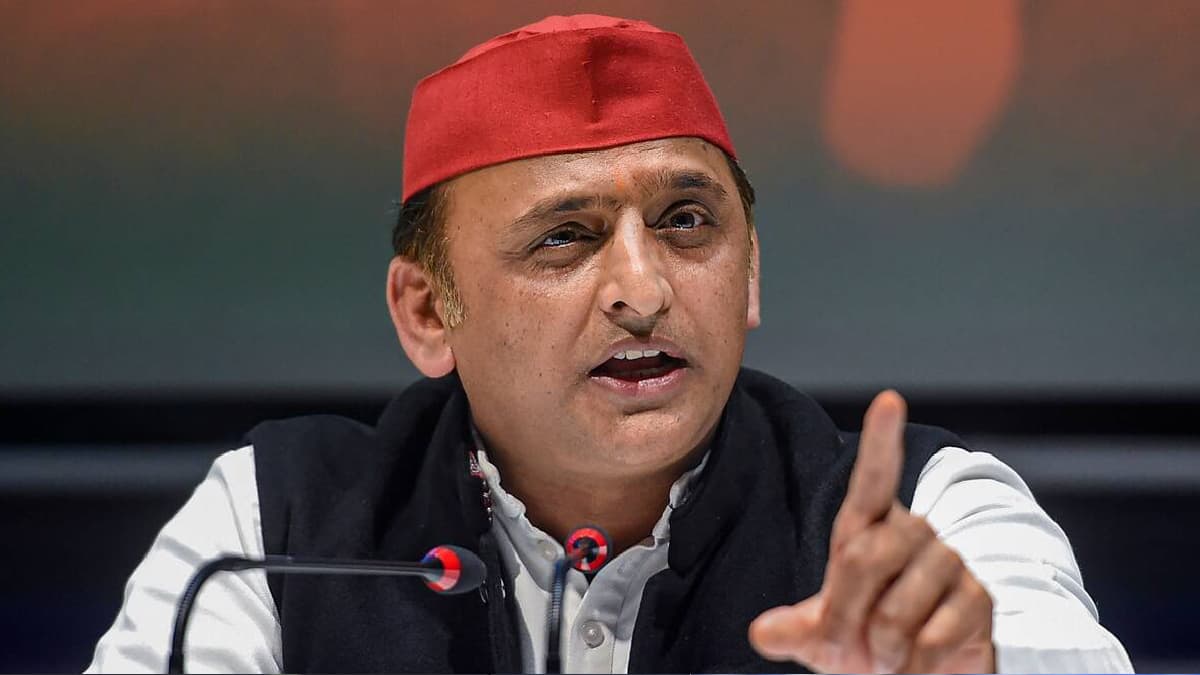The recent ruling by the Allahabad High Court, which ordered the return of 12 acres of land belonging to the Banke Bihari Temple in Mathura, has reignited debates about Akhilesh Yadav’s governance and his standing among Hindu voters. This land, reportedly transferred overnight during Yadav’s tenure as Chief Minister to a Muslim organization for the construction of a graveyard, raises critical questions about political accountability, secularism, and the manipulation of religious sentiments in Uttar Pradesh politics.
In its judgment, the Allahabad High Court described the case as unprecedented, underlining the gravity of transferring a large piece of temple land to a non-Hindu entity without transparent deliberations. The court’s decision to restore the land to the temple is seen as a correction of what it deemed an act of injustice. This verdict comes as a relief to many Hindus, who view temple lands as sacred and non-negotiable assets of their cultural and religious heritage.
The case also casts a spotlight on governance practices during Yadav’s leadership. Critics argue that such decisions reflect a disregard for fairness and accountability, raising concerns about the motives behind this transfer and the speed with which it was executed. Whether this act was rooted in appeasement politics or administrative oversight remains a contentious issue, but its implications are undeniably far-reaching.
For many Hindu voters, the High Court’s intervention is a reminder of what they perceive as a pattern of neglect under Akhilesh Yadav’s leadership. Questions arise about whether his policies align with the aspirations and values of a significant portion of the electorate in Uttar Pradesh. Critics see this incident as emblematic of a broader issue: the marginalization of Hindu interests in the name of secular governance.

On the other hand, Akhilesh Yadav’s supporters argue that his tenure has seen progress in infrastructure development, education, and healthcare. They contend that focusing on communal issues detracts from assessing his overall governance record. However, the symbolic weight of such incidents—particularly in a politically and religiously sensitive state like Uttar Pradesh—often overshadows broader achievements.
The upcoming elections will likely see intensified competition for the Hindu vote bank. Parties will aim to frame narratives that resonate with this majority community. The Mathura land controversy adds fuel to the fire, potentially swaying undecided voters or consolidating opposition against Yadav.
However, it is essential for voters to critically assess whether isolated incidents should define an entire term of governance. Hindu voters must weigh the importance of preserving their cultural heritage against broader development goals. Does Akhilesh Yadav’s overall track record suggest a disregard for Hindu interests, or does this case represent an anomaly?
While controversies like this dominate headlines, they also expose the broader issue of identity politics in India. Political discourse often devolves into communal debates, diverting attention from pressing issues like unemployment, healthcare, and education. Leaders must address these core concerns to foster unity and progress.
The Allahabad High Court’s judgment has undoubtedly stirred emotions and raised pertinent questions about Akhilesh Yadav’s leadership. For Hindu voters, this incident serves as both a cautionary tale and a call for deeper introspection. As elections draw closer, the electorate must decide whether such actions represent a pattern of governance or an isolated lapse. Ultimately, the choice hinges on what values and priorities voters wish to see reflected in Uttar Pradesh’s leadership.







